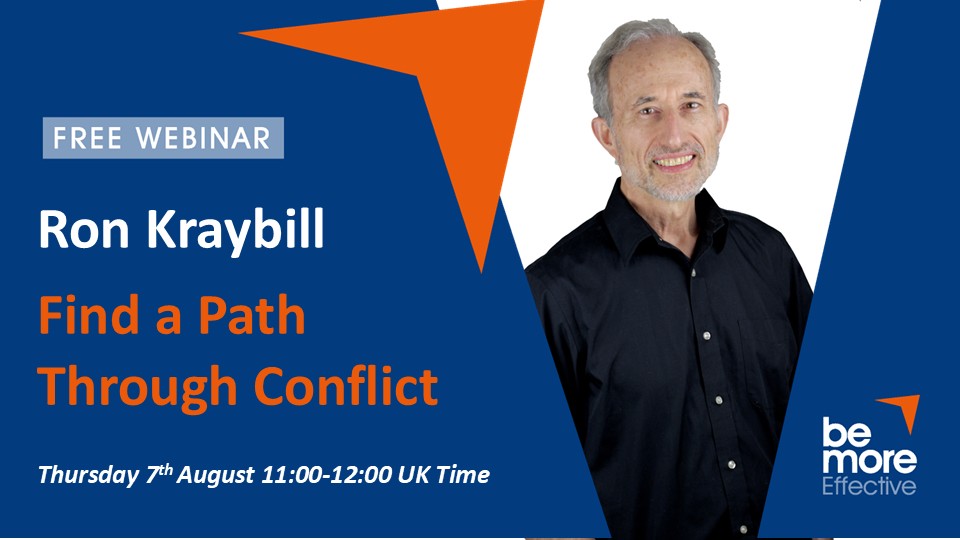How to Empower Employees with Questions

Time is short. We’re busier than ever. Even when we’re forced to slow down, our minds keep working. When we can’t do the things that we want to do, then we look for ways to do them anyway. We call that a workaround or a hack.
Einstein once said that you can’t solve a problem with the same mind that created it. What he meant is that you have to change the way you think. If one way of thinking created a problem, then you need to adopt a different way of thinking to solve it.
For instance, you may have to change your assumptions. If you assume the same things to be true, then you’ll probably draw the same conclusions, which means that you won’t be any further ahead than you are now. Instead, you’ll keep going in mental circles.
Another alternative would be to keep the same assumptions, but then look for other explanations or conclusions that could be drawn from the information available to you.
Sometimes what passes for common sense isn’t all that common and doesn’t make sense. It’s just accepted as true. But no one questions it. Sometimes the best explanations are counterintuitive. It was Sir Arthur Conan Doyle, alias Sherlock Holmes, who reminded us that once you’ve eliminated the impossible, whatever is left, however improbable must be the truth.
Questions challenge your assumptions, your reasoning, and your conclusions. They force you to think, instead of to react. And that’s why they’re so effective. When you pause and think, then you’re more likely to examine these things than if you just spout them out as some kind of accepted truth.
One such place where questions are useful is in the process that employees use to get their information. Often, they’re just told. There’s no discussion. They might be simply told to do what you tell them to do.
That doesn’t empower anyone.
Now maybe your goals are to prevent or to limit their decision-making, but if the lockdown taught us anything, then it’s that employees need to be more autonomous; not less. If you’re paying people to simply do as their told, then you probably hired people who are too talented and too highly skilled for your organisation. Thing is that it was your recruitment method that put them there. People who have the ability to make decisions generally want to. They don’t simply want to be told what to do. And the lockdown has proved that they are worthy of your trust to do so.
How can you empower your employees? By using questions, instead of commands, to teach them.
Why questions?
It’s because questions elicit a response.
If when employees ask you “why”, for instance, if your reply is along the lines of “because I said so”, then that’s a missed teaching opportunity. No one will learn anything as a result, except that you don’t like dialogue and don’t really care what others think.
But if you reply with the right questions, then you encourage them to think and to reason, and to consider. And all of those things and more are teaching opportunities.
The ability to reason, to follow an argument, and to respond intelligently can and should be taught to your employees. This is something of a lost art, and we’re all the poorer for it. Arguments these days aren’t won through debate or discourse, but instead by wielding the biggest club or shouting the loudest. People who cave into that kind of pressure themselves seldom make good decisions. That’s because the herd mentality either doesn’t possess the facts or doesn’t want to be confused by them.
Why is it important for employees to learn to think and to reason? It’s not just so that they can make better decisions. It’s also so that they can learn how to defend their corner.
There will always be those who will attempt to dismiss the ides of others, or even to shout them down because they have no cohesive retort; but the person who can clearly articulate their position and defend it, even in the face of aggressive criticism, won’t just win the day, but will earn the admiration and respect of others.
Leaders are made this way.
Good questions also force people to think quickly and to expect the unexpected - skills that all leaders and managers need. And good questions also compel people to learn to listen: Another lost art. The ability to follow a line of reasoning, instead of simply waiting for the other person to breathe so that you can inject your tuppence worth, enables you to contribute something of greater value. It makes you worth listening to.
Teaching others with questions also helps them to ask better ones of themselves and others. The person who asks the questions controls the conversation. That’s because, in most cases, the other person feels obligated to respond. Few people have honed the skill to ask questions when they’re asked on themselves.
This is why the best sales calls are based on questions. When your prospects respond, they teach you something about them and their needs. You can’t learn anything if you don’t ask them good questions. But because questions also make people think, they often find it difficult to parrot a canned answer. This reveals the depth of your own thinking and research into them, the result of which will be that they have a higher view of you because you caused them to reflect on what they know and then reveal it to you.
Good questions also put an end to meaningless arguments. People who want to argue are seldom looking for a discussion. Instead, they want to force their opinions on you. You can wrong foot them by responding with a question. Instead of defending yourself against their accusations, which is what they expect, ask them why they think the way they do, or where they got their information. You can do it nicely, of course, but you’ll find that you can shut down a conversation with someone who wants to argue by switching from defense to offense. And so good questions can either facilitate discussion and help all concerned to dig deep into a topic, or they can put an end to meaningless arguments.
The Socratic Method
Perhaps the best known method that uses questions is called The Socratic Method. Plato recorded many of the questions that Socrates ask in what has become known as his Works. The questions were all designed - the word design suggests that there’s a meaningful purpose behind them, and that the goal isn’t to shut down genuine inquiry - to get people to agree with statements that contradicted their original assertion.
Why is that valuable?
It’s because it reveals flaws in the argument, in the reasoning, and in the conclusions, which is exactly what Einstein was referring to.
In proper discourse, contradictions can appear on both sides, which means that there’s scope for both you and your employees to learn.
You can see now why people who simply exchange opinions, rather than questioning them, often ends up as nothing more than agreeing to disagree. It’s because there’s no means to delve into the meat and potatoes of the premise. It’s just one person’s thoughts, if you can call them that, vs another’s. And in what passes for a “tolerant” society, one opinion is as good as anyone else’s, even though we know that that’s not the case.
The Socratic Method is an effective means to empower employees because it provides a teaching framework. And that’s because each question builds on the previous one. In other words, the questions themselves advance the criticism of the argument.
In the best teaching situations, there are two things going on simultaneously. On the one hand, those in the discussion are exchanging ideas, but on the other there’s a logic in the order of the questions themselves. All too often, you get the former in the absence of the latter. In that situation, the questions can appear to be random - unconnected with one another.
Of course, to teach like this, you have to be able to anticipate how the discussion is likely to go. In the same way as a chess grandmaster can foresee thousands of possible moves, you have to consider all of the potential directions that the discussion could go in. That will take some practice, but as you now know, the use of questions will benefit everyone.
The Socratic Method is also effective because it trains employees to become leaders. People willingly follow the best leaders because they not only make good decisions for the organisation; they also make ones that benefit those who follow them.
Many in leadership positions overlook this. They’re so consumed with their own agendas that they forget that they need others to help them fulfill them.
And the best leaders know - have learned - how to create an environment that makes honest discourse feel safe. People will never be candid with you if they feel threatened, or if they feel that their jobs would be in jeopardy as a result of saying what they really think.
When you teach them to think, to reason, to defend their position by asking them questions, you empower them to teach others.
And isn’t that what empowerment is about? To enable everyone to make better decisions?
In the post-lockdown world of work, employees will need to make more decisions for themselves than they have since the Industrial Revolution in the 18th century. Some of that will be because they’ll continue to work from home, either by choice or necessity. Some of it will come as a result of the restructuring of companies or changes in job descriptions.
Whatever the reason, you stand at a threshold. You can empower your employees by asking them better questions, or you can stifle their growth by limiting your response to “because I told you so.”
But if you’re going to solve leadership, or management, or motivational, or many of the other problems that existed in your organisation before the pandemic, then you’re going to have to change the way you think in order to do it. And that’s because the workplace has changed already.
For more information please send a message via the Contact Us Page. Or you can register for an upcoming webinar.


